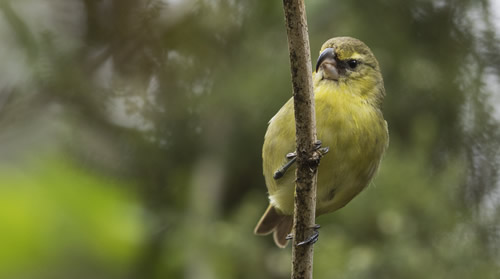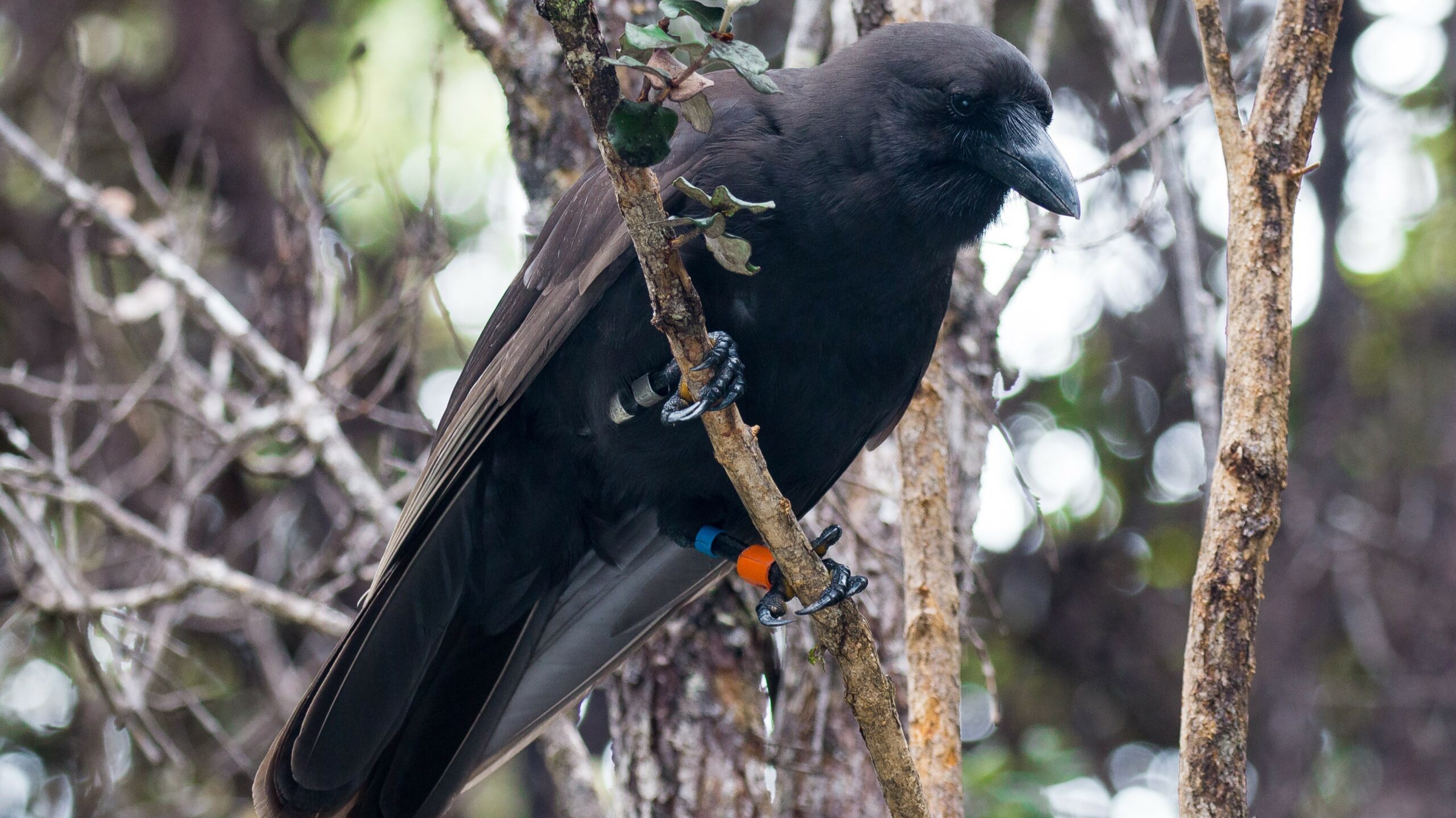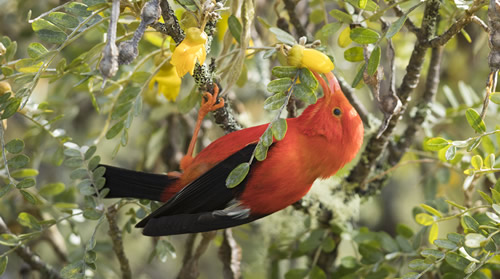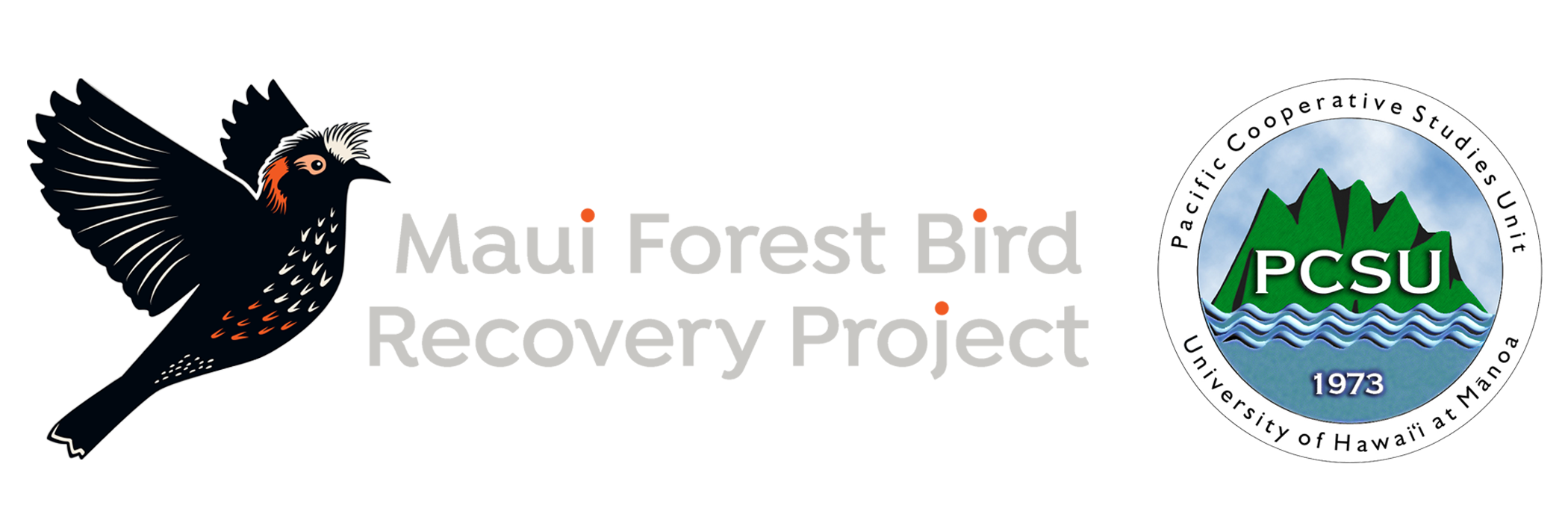Our Work
Save the Forest, Save the Birds
Kiwikiu Recovery
Ever since it was first described to scientific community in 1893, the Kiwikiu was known as a rare species and its continued existence is precarious. Find out what is being done to save this special creature from extinction.

ʻAlala Recovery
ʻAlalā are the last endemic Corvid species found in Hawai’i and they are extinct in the wild. Their last populations exist in human care. MFBRP is working with partners to reintroduce ‘Alalā into the wild on Maui. Learn more about these efforts.

Avian Disease
Hawai‘i’s birds face a unique and deadly threat: non-native avian diseases spread by invasive mosquitoes. While avian malaria is common and often mild in other parts of the world, Hawai‘i’s native honeycreepers evolved without exposure to it—and their immune systems are no match. As a result, this disease has devastated populations across the islands. Controlling mosquitoes is now essential to halting disease transmission and giving honeycreepers a chance at recovery.
![]()
![]()

MFBRP is leading critical efforts to recover Maui’s most endangered forest birds including the ʻĀkohekohe. Once widespread across the island, native forest birds have suffered dramatic declines due to habitat loss, introduced predators, and avian disease. Our work includes intensive monitoring, disease mitigation research, and hands-on conservation work in the field—all aimed at giving these rare birds a fighting chance. The survival of these birds is not only vital for Hawai‘i’s biodiversity, but also for the cultural and ecological integrity of the forest itself.
In order to protect these unique species, we need to know as much as we can about them and the threats they face. Little research had been done on many of these species and even information about their basic biology was not known until very recently. Here we highlight some of the research MFBRP has conducted over the past twenty years to answer the most pressing questions.
Habitat loss and degradation threaten wildlife across the globe, but islands are especially vulnerable. Their isolation has led many island species to evolve without the predators, competitors, or grazers that exist on mainlands. As a result, even small disturbances—like the introduction of non-native herbivores—can have devastating effects. Native species often retreat or vanish entirely, and diverse ecosystems can be rapidly overrun and replaced by invasive-dominated landscapes.
READ MORE
Restoring native ecosystems after years of loss and degradation takes time, dedication, and long-term commitment. But for Maui’s native forest birds to survive and thrive, they need more than protection—they need healthy, expanded habitat. MFBRP and its partners are working tirelessly to restore and enhance native forest on the leeward slopes of Haleakalā, creating the space these birds need to live, forage, and grow.
Just as island plants evolved without mammalian herbivores, many island animals became naïve to the threat of mammalian predators. Rats, often transported unintentionally as stowaways, have spread across the globe. In response, humans introduced predators like cats and mongooses to control them—often with devastating consequences. These species have played a major role in countless island extinctions, including in Hawai‘i. Today, controlling invasive predators in sensitive habitats is essential to protecting and conserving Hawai‘i’s native birds.
Save the Forest, Save the Birds
It takes a community of dedicated individuals and support to make conservation happen
